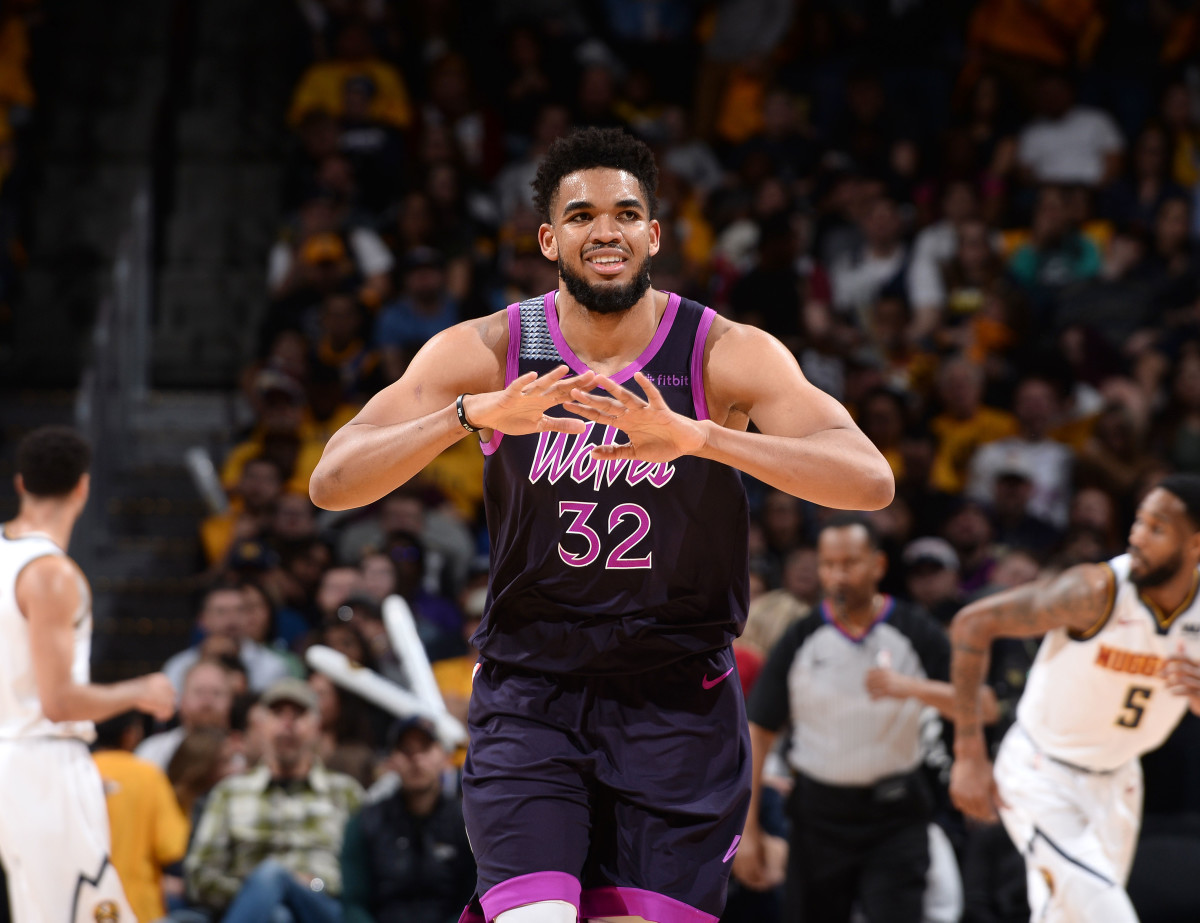Karl-Anthony Towns Is Taking the Next Step in the Midst of a Forgettable Season

The best player in the NBA since the All-Star break has quietly plied his trade for a losing team inching toward playoff disqualification. Minnesota’s season is in its winter; the Timberwolves trail the West’s eighth seed by seven wins with just 14 of their own games left to play, a fitting end to their creeping irrelevance. No one, it seems, has informed Karl-Anthony Towns.
With ostensibly little to play for and only a short-handed roster to play with, Towns has mounted a charge of his own. There was the defiant win against the Thunder and the spoiler bid against the Kings. There was the season-high 42 points at the expense of the Pacers and the crossover that sent rival center Nikola Jokić stumbling into highlight reels. Towns was always a player of incredible ability. Now, in year five, he shows signs of incredible command.
What a month it’s been. Towns has averaged 35 points per game on 70% true shooting since the break, rounded out by 13.6 rebounds and 3.4 assists. His defensive positioning and rotation—long inconsistencies in his night-to-night performance—have been noticeably cleaner. There is some reassurance in how seriously Towns has taken a series of games that do not capital-m Matter, given how easy the alternative would be. The Wolves are already without Robert Covington, Jeff Teague, Andrew Wiggins, and Derrick Rose due to an assortment of injuries. Towns himself narrowly avoided disaster when he felt his knee pop in the fourth quarter of a game against the Wizards. Sitting out seemed the obvious choice. Instead, Towns returned to play the Nuggets just three days later to challenge Jokić, dunk on Mason Plumlee, and mount a valiant effort in a blowout loss.

There frankly isn’t much reason to watch the Timberwolves in March, but those who pass might be missing out on the first signs that Towns’s game has come of age. The Towns on the floor now bears little resemblance to the player who faded into the background of a playoff series a year ago, or the one who sulked his way through Jimmy Butler’s exit last fall. For a prospective franchise player, those were trials failed. This is something else entirely: a light at the procedural end of another empty season, and a moment of transition for a franchise with so much left to sort out. By playing the way he has, Towns has at least made his standing unambiguous. A showing like this invokes Kevin Garnett, both in the world of possibility it creates and the pressing need to make the most of it.
Whatever the next era of Wolves basketball looks like (and however long it takes to cultivate), it has to be anchored more fully in Towns. The single best thing that Ryan Saunders has done in his role as head coach is to keep Minnesota’s hyper-talented superstar at the forefront—something that Tom Thibodeau seemed oddly reluctant to do. A player like Towns should never be an afterthought. There will always be room for reasonable people to disagree as to how to best deploy a seven-footer this versatile, but it should never occur to anyone watching the Wolves that Towns isn’t involved enough. Some bigs should aspire to Al Horford subtlety. Towns is not one of them. Everything he does should be loud. There’s no need to stop short when Towns has it within his power to play matchup-altering, scheme-breaking basketball on a nightly basis.
If this last few weeks have shown anything, it is an acceptance of that responsibility. Towns himself had been complicit, at times, in his own minimization. No one but Towns could be at fault for the way he would bail on a post-up, resigning himself to the corner. Deference is so often the easiest way out. What’s hard is showing up to work every night for a team short four rotation players, deprived any sense of normal structure, and dominating the game in most every fashion. It’s grinding out a convincing All-NBA case from a stretch that could easily be a formality. It’s carrying the burden of a superstar, and all its frustrations, for no other reason than you should.
